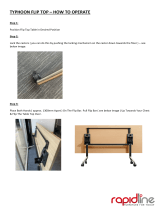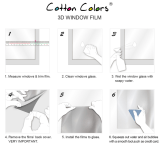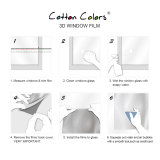
ENGLISH
13
ENGLISH
12
Installing Scanner Driver
a. Insert insert driver CD into the computer CD/DVD drive and explore the
contents.
b. Double click the ”CyberView X 5.0” icon to begin the installation pro-
cess. Follow the onscreen prompts to complete the installation process.
NOTE: Make sure the scanner is NOT connected to the computer during the
CyberView X 5.0 driver installation.
c. Restart computer once the installation process is complete.
Installing Hardware
a. Connect the slide scanner to a power source.
1. Locate the power switch on the lower left side of the scanner. Make
sure the scanner is TURNED OFF.
2. Plug the AC adapter into an AC power source FIRST before plug-
ging it into the scanner.
3. Attach the USB cable to the computer using the stadard USB
adapter end. Attach the USB adapter end of the cable to back panel
of the scanner.
b. Ensure the scanner does NOT have a slide magazine loaded, turn the
scanner ON. The calibration cycle on the scanner will start automatically
and will take several minutes to complete. A green light will flash while
the calibration is in progress. The slide transport arm will move in and
out of the scanner. MAKE SURE THERE IS ENOUGH ROOM IN FRONT
OF THE SCANNER FOR THE SLIDE TRANSPORT ARM TO EXTEND
FULLY, DO NOT PUSH THE ARM BACK DURING CALIBRATION.
INSTALLING SOFTWARE AND DRIVER
for Mac (OSX) User
Before Installing the Scanner Driver...
If you choose to use the provided application for image editing, install the
application software (ex: Adobe® Photoshop® Elements) by inserting the
application CD into the computer’s CD/DVD drive. Follow the instructions that
will be displayed in a window that opens automatically.
Compact Magazine
a. As illustrated below, turn the magazine with the embossed lettering
“COMPACT MAGAZINE 50” and the white strip on the right facing
towards the top.
b. Hold the slide right side up, facing forward so the image is NOT
reversed. Rotate the slide as illustrated and Insert each slide, one at a
time, into the magazine.
Warning: Load slides into the magazine properly and make sure the slide mounts are in
good condition. Improperly inserted slides or slides with distorted/damaged slide mounts
may cause the scanner to jam and potentially damage both the slide and the scanner.
Lettering
WhiteStrip
Compact Magazine
General Recommendations:
• Cardboard based slides should be used with the Universal Magazine
DIN 108.
• Glass framed slides that are attached to glass frames may cause compli-
cations due to the hard edges.
Loading slide(s) into the magazine

























